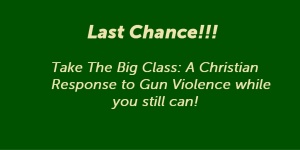At my sister’s wedding, the priest pointed out during his homily that the event of witnessing this marriage had brought people together into a unique community. A disparate group of people from multiple states and countries had come together for one weekend to celebrate this life event with these two people. For that weekend, we formed a community, united in the common purpose of celebrating the marriage of two people whom we loved.
While they are not always as profound as that one, many other kinds of life experience create community for those who share them. Online experiences these days can create particularly unique communities in which people participate (oddly) at different times and only as actively as they choose. My husband, for example, is on a message board for a computer game wherein guys who like football manage imaginary teams and play them against each other. (The appeal of this game is lost on me, but it makes them so happy that I enjoy it vicariously anyway.) The experience of playing the game together has created a community on the people on this message board. They have never met in person, but they are friends: they trade jokes, ask for advice, discuss life events. They have created a tight enough community that when one of these guys moved nearby, it seemed quite natural for us to immediately start hanging out with his family; the online community extended itself naturally into our physical world.
ChurchNext classes create unique communities. Sometimes, the online class community enhances the physical community of a congregation. A priest at one church in Virginia, for example, uses online parenting classes to reach out to congregation members with young children who can’t always make it to classes at the church because of their family obligations. In that case, the experience of sharing this learning and in particular of discussing the classes together online enhances the physical community. Sometimes, the online community becomes its own event. I very much enjoyed reading the discussions that went on during our Big Class: A Christian Response to Gun Violence because people talked and debated and learned from each other across the country and even across the world. Briefly, the class built its own community, fueled by a common call to resist a problem that we have encountered.
As you integrate (or consider integrating) ChurchNext classes into your life or your congregation, think about the classes’ potential to build community. Use the discussions not just to answer questions, but to communicate with people. Ask your own questions. Follow up your points. Think things out with others. If we approach them with the right mindset, sharing experiences — especially those related to learning and spirituality — online can bring people together in ways that people have never been able to experience before in all of human history. Let us take advantage of this blessing and use it to build community with one another — a happy opportunity in an age when people so often feel isolated from one another.










